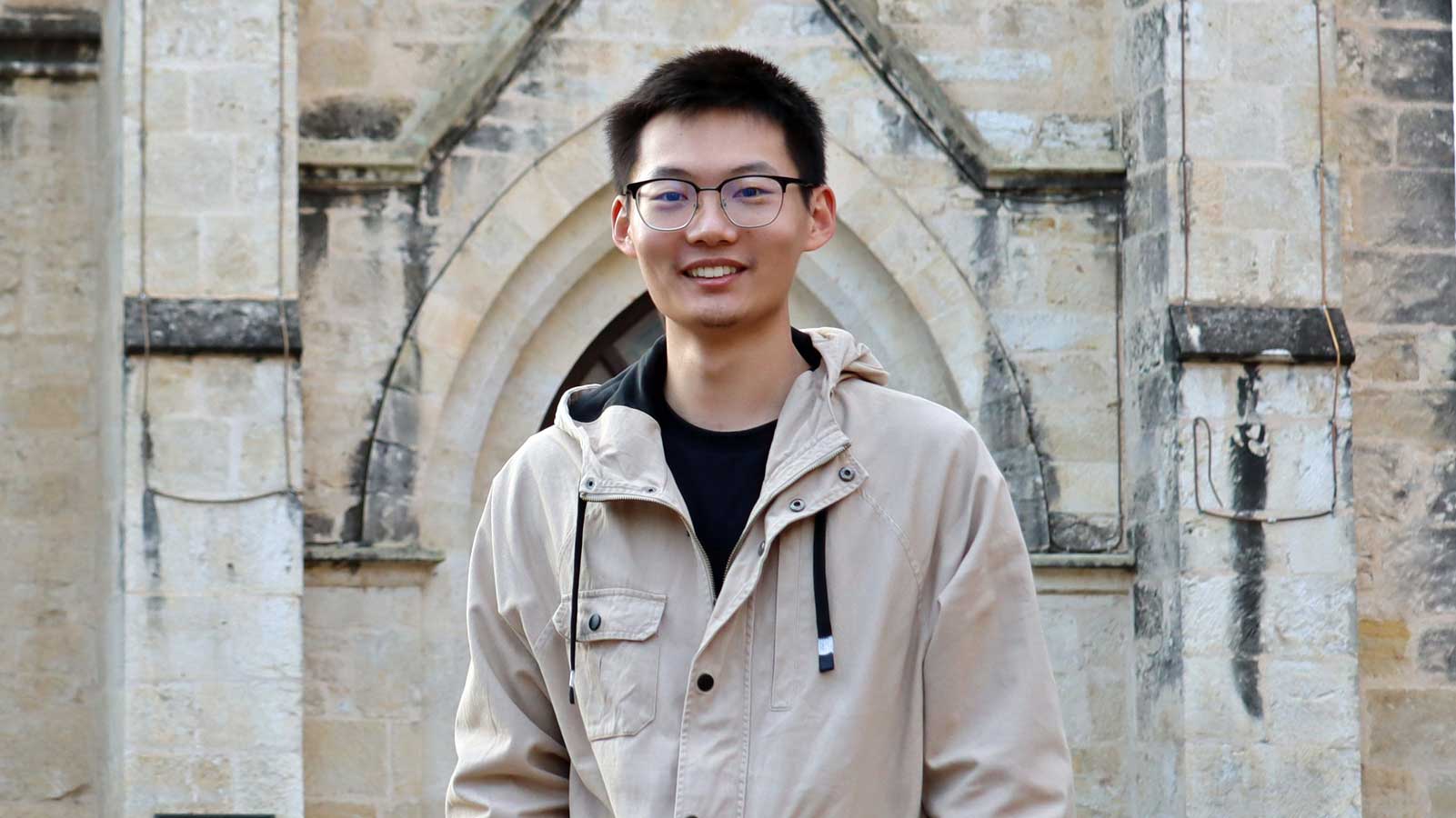“I’ve always believed life is about balancing what you already know with learning something new,” said Rice University Master of Computer Science (MCS) student Taige Zhang. “While working as a software engineer, I began to explore ideas for studying abroad. Unlike traveling around for a few months, pursuing an advanced degree in a new country would give me the chance to immerse myself in different lifestyles and cultures.”
Zhang chose the MCS program at Rice because it offered a combination of highly ranked education with a good living standard in a busy city. Houston’s diverse population offered ample opportunities to learn more about life in the United States, and the other international students he would meet on campus could introduce him to their cultures as well.
“Rice was my preferred school for a higher degree, both for the computer science department and for the many resources the university offers its students. This is a precious opportunity to study in an elite but welcoming environment, an opportunity not everyone receives,” he said.
“It would be easy to look at my background and think I was just looking for another degree or a way to boost my career, but it was a much broader thought process. For me, growth occurs when I push beyond where I am comfortable; the other experiences I am accumulating along with my degree are helping me think differently about the world and about the various aspects of working in global companies.”
Not long after Zhang began his first semester at Rice, he heard about an interesting opportunity to improve his conversational English speaking skills. The IOCC pilot, an intensive oral communications program with accent reduction component, would offer one-on-one coaching and customized software to help him master specific enunciation and pacing habits that come automatically to native speakers.
“The reason I signed up for the IOCC is simple,” said Zhang. “I want to progress with my spoken English. I’ve taken English classes for many, many years - beginning in primary school. But those courses were exam-oriented and ignored the actual communication skills necessary for conversing with someone. How can I learn more about culture and life in the U.S. if I can’t talk easily with Americans?”
Zhang dove into the IOCC program and took the weekly software and practice assignments seriously. He said his desire to talk with native speakers, especially younger speakers who have a tendency to go really fast, prompted him to choose increasingly difficult words and phrases.
“I really liked this program, and thanks to Katerina Belik, it has made a very positive impact on my speech. For example, it forced me to open my mouth more when speaking English. The program could have been intimidating, but instead it pushed me to practice, practice, practice. We met once a week and my homework was due before class. I planned for my IOCC homework just like the homework for my MCS courses.
“The one-on-one coaching was a very good teaching approach. During those meetings, Belik could give me immediate feedback or point out problems with my pronunciation as quickly as possible. Rather than allow me to keep mispronouncing or stumbling over syllables, she would identify my specific issue and help me fix it,” said Zhang.
“Lastly, I was experiencing more and more confidence as the program moved forward. We used a software application from ELSA and I practiced speaking on that application every day. It was steeped in words and phrases requiring different types of pronunciation and enunciation, and at times I wondered if I was making any progress. Then I realized the words seemed to be getting harder and took higher effort day by day and that made me even more confident about my speech.”
Zhang’s advice for future and current international students includes utilizing a variety of Rice’s resources like the IOCC and other ACTIVATE Engineering Communication workshops and coaching. But he also advises students who are focused on internship and job opportunities to set realistic expectations for events like career fairs and expos. Although he accepted an internship offer in the fall, it was not the result of his first career fair.
He said, “The first career fair I ever participated in occurred just a month into the fall semester. Essentially, it was a group of information sessions. I’d introduce myself and then the recruiters would introduce themselves, and we would chat about very basic info. They’d ask if I had any questions and I would ask my questions and that was it. Nothing else happened.
“The one conversation that really seemed to click for both the recruiter and for me ended in disappointment. My last question was, ‘Do you sponsor international students?’ And the recruiter said, ‘Unfortunately, no.’ We had a very good talk, but from the aspect of finding an internship, it was a waste of time. So, my advice to other international students is: ask your most critical questions first. If you need sponsorship, ask about it up front.”
This story is part of a series of profiles for the ACTIVATE Engineering Communication program.

